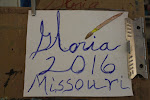SFGate: Bloggers can shield sources, court rules/In setback for Apple, Internet journalists are protected by law
This is VICTORY for bloggers and citizen journalists. Thanks to Ellen Lee
for sharing this article with all of us.
----------------------------------------------------------------------
This article was sent to you by someone who found it on SFGate.
The original article can be found on SFGate.com here:
http://www.sfgate.com/cgi-bin/article.cgi?file=/c/a/2006/05/27/MNGTGJ3K7S1.DTL
---------------------------------------------------------------------
Saturday, May 27, 2006 (SF Chronicle)
Bloggers can shield sources, court rules/In setback for Apple, Internet journalists are protected by law
Ellen Lee, Chronicle Staff Writer
In a decision that could set the tone for journalism in the digital age, a
California appeals court ruled Friday that bloggers, like traditional
reporters, have the right to keep their sources confidential.
A panel of three judges said in a 69-page decision that a group of
bloggers did not have to divulge their sources to Cupertino's Apple
Computer Inc., contending that the same laws that protect traditional
journalists, the First Amendment and California's Shield Law, also apply
to bloggers.
Siding with the Electronic Frontier Foundation, a high-tech legal group
that had filed the appeal, the judges said that Apple could not force the
bloggers to reveal the identity of the person -- presumably an Apple
employee -- who had leaked details about a digital-music-related project
code-named "Asteroid" to a number of bloggers. The details of the product
release were published on several Web logs, Internet sites commonly
referred to as blogs, including Jason O'Grady's PowerPage, which reports
on Apple news.
"This was a huge win for the First Amendment and for journalists who
publish online," said Lauren Gelman, associate director for Stanford's
Center for Internet and Society, who filed a brief supporting the
Electronic Frontier Foundation. "The court recognized that in the modern
era, one way journalists publish information is through the Internet."
The decision by the state Court of Appeal in San Jose, which reverses a
ruling by the Santa Clara County Superior Court, speaks to changes in the
way news is gathered and published. Anyone with a computer and an Internet
connection can now be a reporter. It also means that information, not
limited by region or resources, can reach far and wide via the Web.
In their ruling, the judges said the online news sites should be treated
as newspapers, television and radio broadcasts are. O'Grady and the other
bloggers, they contended, were acting as traditional reporters and editors
do: developing sources, collecting information and publishing it, albeit
on the Web.
"The shield law is intended to protect the gathering and dissemination of
news, and that is what the petitioners did here," the judges said in the
ruling.
Apple had initially argued that the bloggers shouldn't be considered
journalists. The maker of the popular iPod digital music player, along
with other Bay Area high-tech companies such as Intel Corp. and Genentech,
also were concerned that the Internet had made it easy for the bloggers to
make their trade secrets public, potentially giving their competitors an
edge and harming their business.
But Kurt Opsahl, an attorney for the Electronic Frontier Foundation, said
the companies can still protect their businesses but cannot use reporters
as their first resort to expose a leak.
"The court upheld strong protections for the free flow of information to
the press and from the press to the public," Opsahl said.
In addition, the judges ruled that, in the digital age, bloggers' e-mails
should also be protected, just like a telephone call or written document.
Apple had not sued the bloggers directly but had tried to subpoena their
Internet service provider, which had access to the e-mails sent between
the confidential source and the bloggers. The Electronic Frontier
Foundation, representing the bloggers, intervened.
In the end, the judges made little distinction between online journalists
and traditional journalists.
"Does Walter Cronkite stop being a journalist if he blogs for the
Huffington Post (an online news site)?" Opsahl said. "What makes a
journalist a journalist is not the format. If you're engaged in
journalism, you're a journalist. You have to look beyond the medium
selected."
George Riley, an outside attorney representing Apple, declined to comment.
Apple did not return calls for comment. It was not clear whether the
company would appeal.
E-mail Ellen Lee at elee@sfchronicle.com. ----------------------------------------------------------------------
Copyright 2006 SF Chronicle

0 Comments:
Post a Comment
<< Home